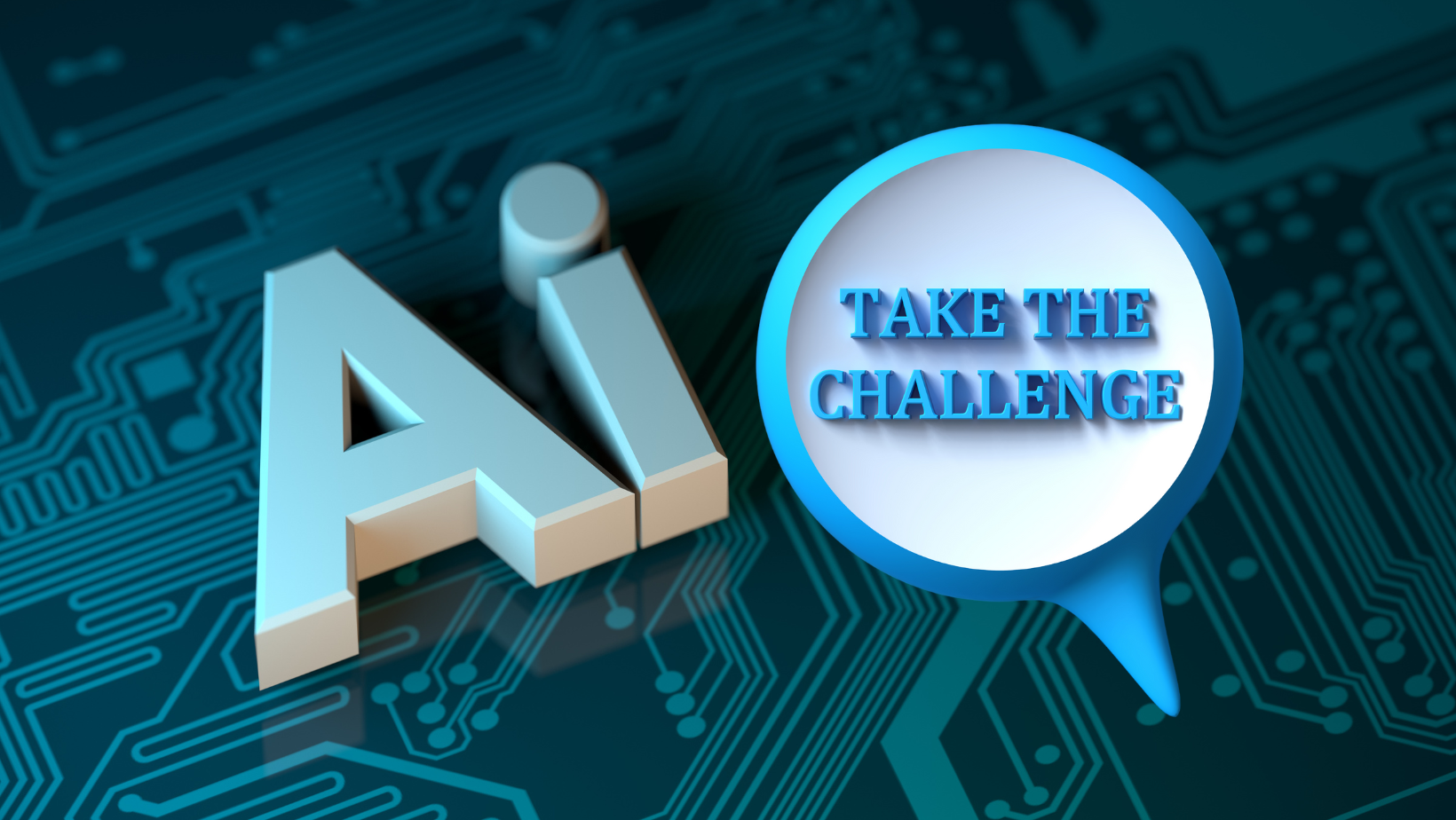Learn how to choose the best AI platform for your enterprise with this 2025 guide, covering key factors, features, and top platforms.
In 2025, artificial intelligence (AI) is no longer a futuristic concept—it’s a critical tool driving efficiency, innovation, and growth across industries. Enterprises, from startups to global corporations, are adopting AI platforms to streamline operations, enhance customer experiences, and stay competitive.
But with so many options—Google Cloud AI, Microsoft Azure AI, AWS AI, IBM Watson, and more—choosing the right AI platform for your enterprise can feel overwhelming. How do you pick the one that aligns with your business goals, budget, and technical capabilities? This article breaks down the process, answers tough questions, and provides a clear, actionable guide to help you make an informed decision. Let’s dive in.
Related Post: How to train a machine learning model with python
Why Choosing the Right AI Platform Matters
AI platforms are the backbone of modern enterprise solutions, enabling businesses to automate tasks, analyze massive datasets, and deliver personalized experiences. Whether you’re building a generative AI chatbot, optimizing supply chains with machine learning, or enhancing cybersecurity with predictive analytics, the right platform can make or break your success. A poorly chosen platform could lead to wasted resources, scalability issues, or integration headaches. So, how do you navigate this complex landscape? Let’s address the key considerations and tough questions enterprises face.
Key Factors to Consider When Choosing an AI Platform
1. Define Your Business Needs and Use Cases
Before diving into platform features, clarify what you want AI to do for your enterprise. Are you looking to implement generative AI for content creation, like marketing campaigns or customer support chatbots? Do you need machine learning for predictive maintenance in manufacturing? Or perhaps you’re exploring AI-driven analytics for financial forecasting?
Tough Question: How do I know which AI use case is worth investing in?
Pinpoint high-impact areas by assessing your business pain points. For example, if customer churn is a problem, an AI platform with strong natural language processing (NLP) can power sentiment analysis to improve retention.
If operational costs are high, look for platforms with robotic process automation (RPA) capabilities. Conduct a cost-benefit analysis to prioritize use cases with the highest ROI. For instance, McKinsey reports that AI in supply chain management can reduce costs by up to 15%. Align your platform choice with these goals.
2. Evaluate Scalability and Integration
Your enterprise likely operates complex systems—CRMs, ERPs, or custom software. The AI platform you choose must integrate seamlessly with these tools and scale as your business grows.
Tough Question: Can I integrate an AI platform with my legacy systems?
Many modern AI platforms, like Microsoft Azure AI or AWS AI, offer robust APIs and connectors for systems like Salesforce, SAP, or Oracle. However, legacy systems may require custom integrations. Platforms like IBM Watson provide pre-built integrations for older systems, while Google Cloud AI excels in cloud-native environments.
Check for compatibility with your tech stack and ensure the platform supports hybrid or multi-cloud deployments if needed. Scalability is also critical—AWS AI, for example, handles massive workloads, making it ideal for enterprises with growing data needs.
3. Assess AI Capabilities and Tools
Not all AI platforms are created equal. Some excel in specific areas, like computer vision or NLP, while others offer end-to-end solutions. Key capabilities to evaluate include:
-
Machine Learning (ML): For building custom models (e.g., TensorFlow on Google Cloud).
-
Generative AI: For creating content or chatbots (e.g., OpenAI’s GPT-based solutions).
-
Computer Vision: For image recognition or autonomous systems (e.g., AWS Rekognition).
-
NLP: For sentiment analysis or voice assistants (e.g., IBM Watson’s NLP tools).
-
Automation: For streamlining workflows (e.g., UiPath’s RPA integration).
Tough Question: Do I need a platform with pre-built models or custom development tools?
If your team lacks data science expertise, opt for platforms with pre-built models, like Salesforce Einstein for CRM analytics or Microsoft Azure’s Cognitive Services for plug-and-play NLP. For enterprises with in-house expertise, platforms like Google Cloud AI or AWS SageMaker offer flexible tools for custom model development. Balance ease of use with customization based on your team’s skills.
4. Consider Data Security and Compliance
AI platforms process sensitive data, making security and compliance non-negotiable. Industries like healthcare (HIPAA) or finance (GDPR, CCPA) have strict regulations.
Tough Question: How do I ensure an AI platform complies with industry regulations?
Look for platforms with robust security features, like end-to-end encryption, role-based access control, and compliance certifications (e.g., ISO 27001, SOC 2). AWS AI and Microsoft Azure AI are known for their compliance with global standards, while IBM Watson emphasizes enterprise-grade security for regulated industries. Additionally, consider platforms with post-quantum cryptography readiness, as quantum computing could disrupt encryption in the coming years.
5. Analyze Cost and Pricing Models
AI platforms vary widely in cost, from pay-as-you-go models to enterprise subscriptions. Hidden costs, like data storage or API calls, can add up.
Tough Question: How do I avoid unexpected costs with an AI platform?
Request transparent pricing breakdowns. AWS AI and Google Cloud AI offer pay-per-use pricing, ideal for testing, but costs can escalate with high API usage. Microsoft Azure provides predictable enterprise plans, while platforms like DataRobot may have higher upfront costs but include support. Factor in training, deployment, and maintenance costs. For budget-conscious enterprises, open-source platforms like TensorFlow or PyTorch can reduce costs but require more technical expertise.
6. Evaluate Vendor Support and Ecosystem
A platform is only as good as its support and community. Enterprises need reliable vendor support, documentation, and a strong developer ecosystem.
Tough Question: What if my team struggles to implement or maintain the AI platform?
Choose platforms with comprehensive support, including 24/7 technical assistance, tutorials, and active communities. Google Cloud AI and AWS AI offer extensive documentation and training, while IBM Watson provides dedicated enterprise support. Check for partnerships with third-party tools or consultancies to ease implementation. For example, Salesforce Einstein integrates with a vast partner ecosystem, simplifying adoption for CRM users.
Top AI Platforms for Enterprises in 2025
Here’s a quick rundown of leading AI platforms, based on their strengths:
-
Google Cloud AI
-
Best For: Enterprises needing advanced ML and generative AI tools.
-
Strengths: TensorFlow, Vertex AI, and strong NLP capabilities.
-
Use Case: Predictive analytics, custom ML models.
-
CPC Insight: Keywords like “Google Cloud AI solutions” have CPCs of $8–$20.
-
-
Microsoft Azure AI
-
Best For: Businesses with Microsoft ecosystems (e.g., Office 365).
-
Strengths: Cognitive Services, Azure Machine Learning, seamless integration.
-
Use Case: Chatbots, enterprise analytics.
-
CPC Insight: Keywords like “Azure AI services” command CPCs of $7–$18.
-
-
AWS AI
-
Best For: Scalable, cloud-native AI deployments.
-
Strengths: SageMaker, Rekognition, Lex for voice applications.
-
Use Case: IoT, computer vision, large-scale ML.
-
CPC Insight: Keywords like “AWS AI solutions” have CPCs of $6–$15.
-
-
IBM Watson
-
Best For: Regulated industries like healthcare and finance.
-
Strengths: NLP, enterprise-grade security, hybrid cloud support.
-
Use Case: Compliance-heavy AI applications.
-
CPC Insight: Keywords like “IBM Watson AI” see CPCs of $8–$22.
-
-
Salesforce Einstein
-
Best For: CRM-focused enterprises.
-
Strengths: Pre-built AI for sales, marketing, and customer service.
-
Use Case: Customer retention, personalized marketing.
-
CPC Insight: Keywords like “Salesforce Einstein analytics” have CPCs of $5–$12.
-
Tough Questions Answered
Q: Should I choose a niche AI platform or a general one?
Niche platforms like DataRobot (for automated ML) are great for specific use cases but may lack flexibility. General platforms like AWS or Google Cloud offer broader capabilities, ideal for enterprises with diverse needs. Assess your use case complexity and long-term goals.
Niche platforms like DataRobot (for automated ML) are great for specific use cases but may lack flexibility. General platforms like AWS or Google Cloud offer broader capabilities, ideal for enterprises with diverse needs. Assess your use case complexity and long-term goals.
Q: How do I future-proof my AI platform choice?
Choose platforms with active R&D, like Google Cloud AI or AWS, which are investing in emerging trends like quantum computing and generative AI. Ensure the platform supports regular updates and new feature rollouts.
Choose platforms with active R&D, like Google Cloud AI or AWS, which are investing in emerging trends like quantum computing and generative AI. Ensure the platform supports regular updates and new feature rollouts.
Q: Can small enterprises afford enterprise-grade AI platforms?
Yes, with pay-as-you-go models like AWS AI or Google Cloud AI, small enterprises can start small and scale. Open-source options like TensorFlow are also cost-effective but require technical expertise.
Yes, with pay-as-you-go models like AWS AI or Google Cloud AI, small enterprises can start small and scale. Open-source options like TensorFlow are also cost-effective but require technical expertise.
Steps to Finalize Your AI Platform Choice
-
Map Your Requirements: List your use cases, technical needs, and budget constraints.
-
Shortlist Platforms: Compare 3–5 platforms based on capabilities, integration, and cost.
-
Run a Pilot: Test platforms with a small project to evaluate performance and ease of use.
-
Engage Stakeholders: Involve IT, data science, and business teams to ensure alignment.
-
Negotiate with Vendors: Request demos, trials, or customized pricing for enterprise plans.
-
Plan for Long-Term: Choose a platform with scalability, support, and future-ready features.
Conclusion
Choosing the best AI platform for your enterprise in 2025 is about aligning technology with your business goals. By focusing on your use cases, integration needs, security requirements, and budget, you can narrow down the options.
Platforms like Google Cloud AI, Microsoft Azure AI, AWS AI, IBM Watson, and Salesforce Einstein offer robust solutions, but the right choice depends on your unique needs. Address tough questions early, test platforms through pilots, and prioritize scalability to stay ahead in the AI-driven future. Ready to take the next step? Start by defining your AI goals and reaching out to vendors for demos. Your enterprise’s AI journey starts here.






